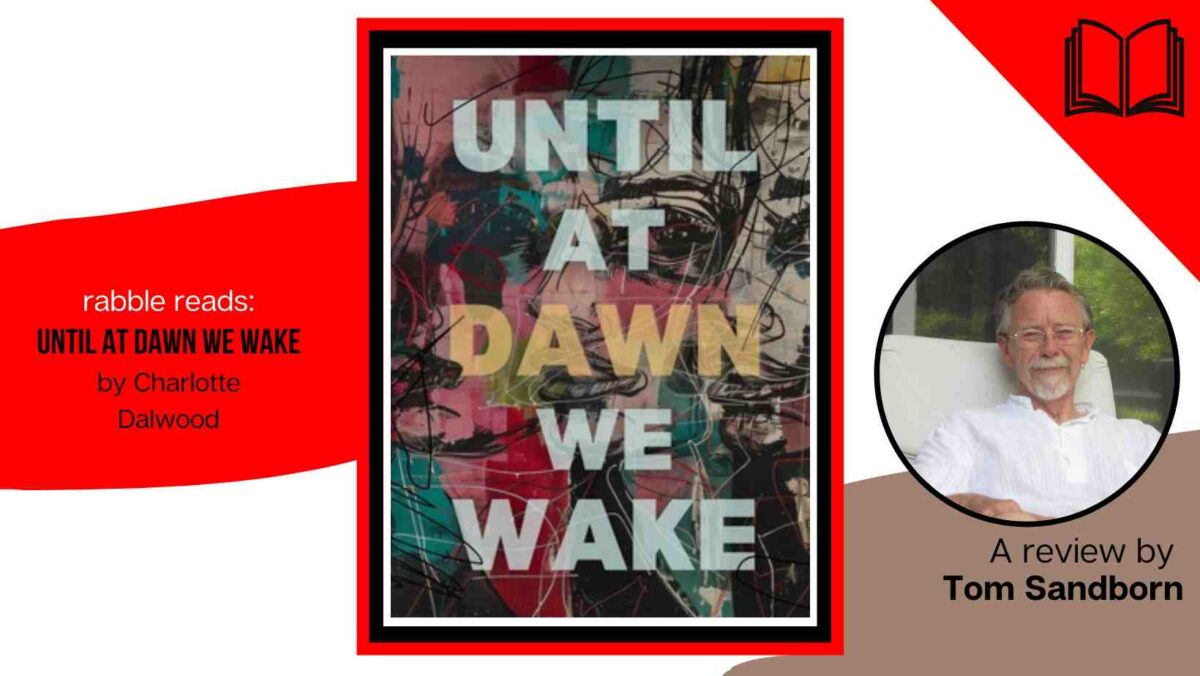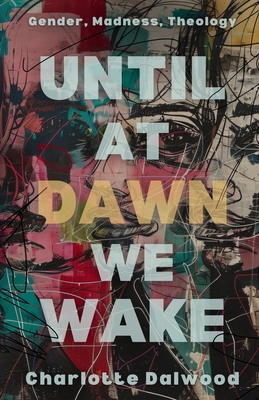Charlotte Dalwood has lived a remarkable life. She is a trans woman who identifies not only as a woman and a schizophrenic, but also as a spiritual seeker, former evangelical, former Anglican clergy and currently a member of a Reform Jewish community at Temple B’Nai Tikvah in Calgary.
(I can think of no other modern figure who has made such an adventurous traverse of religious identities with the exception of Karen Armstrong, a former nun, biographer of Mohammed and the Buddha and instructor at a Jewish college. Armstrong’s vitally important book on religious fundamentalism The Battle for God addresses some of the same themes that Dalwood covers and would be a useful companion read.)
Dalwood is a profound thinker with a supple, erudite mind. She shares some of the wisdom and lyrical prose she has earned and honed along the way in this book of strong, beautiful essays. Some rabble readers may have read her work earlier here. They will welcome the arrival of this collection and will join me in urging others to engage in the complicated, nuanced reflection this brilliant collection invites.
Dalwood describes this book as their “… loving farewell to the Christians who raised me,” but it is far more than a post-Christian “Mommy Dearest.” While she is clear about the ways that both her evangelical family and church, and later the Anglican hierarchy, failed her as she grappled with her trans identity and the florid delusions she attributes to her schizophrenia, this is not a bitter book. It is by turns funny, fond, and profound, and every sentence is shapely, every argument compelling.
It will be a challenging read for believers in any theology, not because it dismisses the human concerns that inform faith systems, as too many secular critics do. Rather, the author insists on her right and obligation to wrestle with these concerns as an heir to tradition and re-cast these theologies in the light of her own lived experience and extensive erudition. Think of their work as a kind of radical theology of freedom, or as a post-modern philosophy enterprise informed in part by the Rolling Stones’ “Sympathy for the Devil.”
When they first experienced what she understands now as psychotic delusions, Dalwood thought she was the reincarnation of great Jewish prophet Ezekiel. She is careful to insist that she does not romanticize her psychotic episodes; for her, psychosis is not the same as genuine religious experience. And yet she also insists that it is ableist to assume that the Divine will not reveal itself to those who are seen as disabled. The schizophrenic experience is not genuine communication from God, but it is, she suggests, adjacent to it, and folks like her who have experienced psychosis may have a clearer intuition of what the face of God is than “normal” people.
This careful, nuanced parsing of the issue at hand is typical of Dalwood’s approach. Some readers may share this reviewer’s unease about the author’s relatively uncritical acceptance of some of the categories of medical model psychiatry and may want to turn to other sources for a more radical critique on this point from the self-described “escaped lunatics” of the mental patient’s liberation movement like Irit Shimrat.
Yet here too, Dalwood displays the nuance and complexity of her intellectual method. She accepts psychosis as a category, but clearly opposes involuntary “treatment,” and in one passage says that time in a psych hospital is worse than hell. I am reminded of a wonderful headline in the newspaper of the Vancouver Mental Patients’ Association, the Nutshell, “The Myth of Mental Illness, the Reality of Feeling Horrible.”
Dalwood is a fearless essayist, taking on many difficult and thorny current debates, including the conflicts between trans people and the malevolent chorus of anti-trans voices that range from Donald Trump’s MAGA movement to a controversial current within feminism, the trans exclusionary radical feminist, or TERFs.
On this topic, too, Dalwood can be polemic without being thoughtless or hateful, an ability often sadly missing in her critics. Dalwood refuses to be silenced by her critics, and progressive readers have reason to be grateful. Whether you agree with all her positions or not, this is an author who has produced a book that is good to think about, with challenging analysis and lucid, lapidary prose. Buy some copies and give them to your friends and family, especially if that circle includes people wrestling with angels. Highly recommended.




